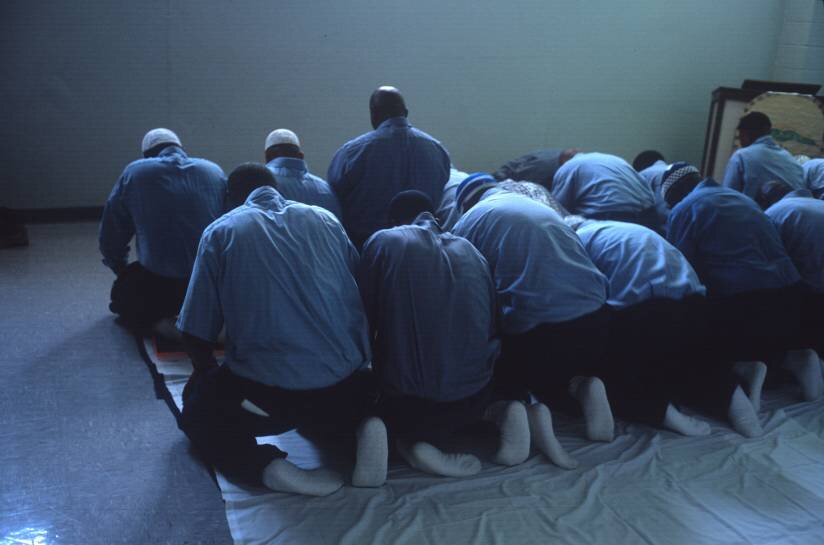
Islamic Chaplaincy
A Spiritual Care Profession
Chaplain Amjad Tarsin talks about his work at the University of Toronto.
A Muslim chaplain is a professional who offers spiritual guidance and care in a specific institutional context. The most common institutions are a military unit, a college campus, a hospital, or a prison. Some masajid are now also hiring Muslim chaplains, and it is common to find other chaplains serving with public services such as within police and fire departments and supporting disaster relief and crisis workers. Although Muslim chaplains often provide religious services for members of their own faith communities, the main role of a chaplain is to facilitate or accommodate the religious needs of all individuals in the institution in which he or she is working. At times, chaplains often serve as experts on ethics to their colleagues and employers, providing insight to such diverse concerns as end-of-life issues, grief and family counseling, and religious and cultural accommodations. Professional chaplains do not displace local religious leaders, but fill the special requirements involved in intense institutional environments. Thus, a Muslim chaplain is not necessarily an “Imam,” although an Imam may work as a chaplain.
Muslim chaplains fill a variety of roles, often dependent on the institutions where they serve. Here are just a few of the responsibilities chaplains may have: supporting families during times of grief, loss and end of life, advocating for religious freedom and rights, advising institutions on religious and cultural accommodations, providing ethics guidance, representing Islam at the institutional level, and providing instruction in Islamic sciences. Professional chaplains do not displace local religious leaders, but fill the special requirements involved in intense institutional environments.
A professional chaplain has training, adheres to a code of ethics, and is accountable to the institution in which she or he serves. The Association of Muslim Chaplains recommends a combination of graduate level religious studies, traditional Islamic sciences education, and at least one unit of Clinical Pastoral Education. Familiarity with American culture and counseling skills are also important.
Providing Care in Public and Private Institutions
Although there is no equivalent job title in historical Islamic societies, Muslim men and women are increasingly working as volunteer, part-time and full-time chaplains in prisons, hospitals, universities, the military, within and other American institutions. Besides working directly with Muslim clients, Muslim chaplains serve all people within the institutional framework and it is within this framework that they utilize pastoral counseling to share, not impose, religious values.
Combining religious knowledge with compassionate listening skills and intercultural competence, Muslim chaplains, like chaplains of other faith traditions, improve the mission of their institutions by recognizing and caring for the religious, spiritual and/or existential concerns of clients.
Why “Chaplain”?
The term ‘chaplain’ remains unclear and under-appreciated in the Muslim American community as some may still regard it as singularly Christian, owing to the original usage of the term. Yet just as many foundational American institutions, such as universities, prisons and hospitals, grew from Christian roots but changed over time to meet new goals, chaplaincy has evolved with the institutions it serves.
Today terms like ‘chaplain’ and ‘pastoral care’ are properly understood as religiously neutral, multi-faith terms with reference to their use in employment in secular institutions. Modern chaplaincy encompasses multiple religious outlooks and theologies to meet the needs of a religiously diverse clientele. Similarly, the governments of some Muslim majority countries today, such as Turkey and Morocco, are training women along with men as religious professionals known as vaiz(e) and murshid(a) respectively. Like chaplains, these religious advisers work in prisons, schools, hospitals and their local communities to meet current religious and social service needs.
Chaplains as the Face of Islam
It has been said that Muslim chaplains are “the face of Islam” in American institutions. At a time when Islam and Muslims are often demonized through negative stereotypes and pervasive images in the media, Muslim chaplains play significant roles as public spokespersons, religious service facilitators, advisers, counselors, advocates, teachers, and administrators.
The Association of Muslim Chaplains (AMC) promotes the professional development of Muslim chaplains as spiritual caregivers and representatives of a diverse global religion. It provides a platform of education, advocacy and collegiality to support their work and the care of those they serve.
Where Do Muslim Chaplains Serve?
Muslim Chaplains can be found in a variety of institutional settings. Here you will find information pertaining to the most common settings: educational campuses, the military, corrections institutions, and hospitals. Additionally chaplains are employed at a variety of non-profit, government agencies, and businesses. These chaplains are considered community chaplains and are grouped together under that title.








